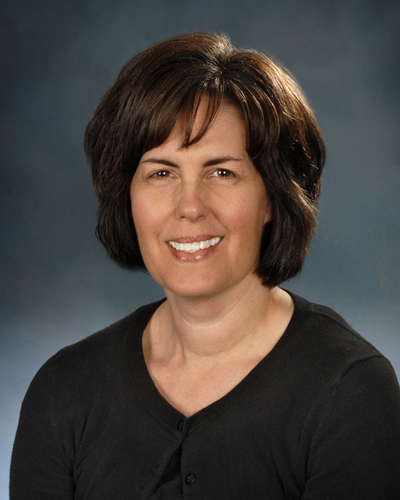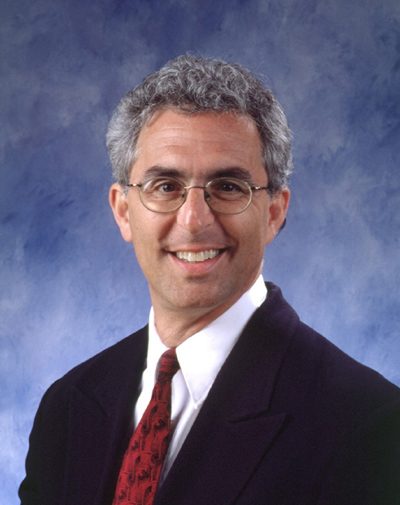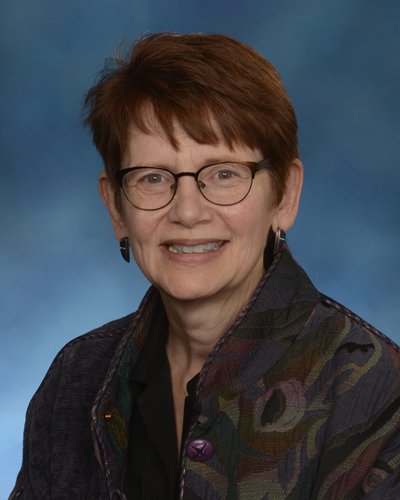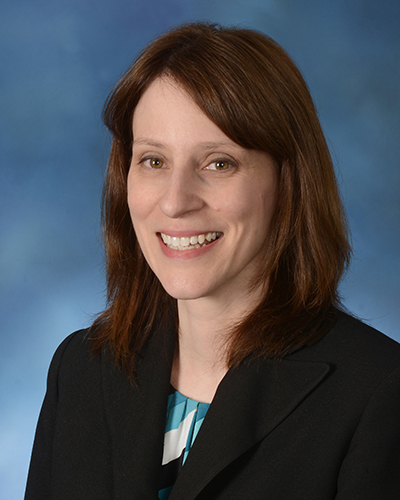EIP Expertise
Early Intervention Program Expertise
The Maryland Early Intervention Program was established in part by funding from Maryland's Department of Health. Our partners have extensive experience:
- Providing clinical services to the citizens of Maryland.
- Evaluating novel therapeutics for people with treatment-resistant schizophrenia.
- Implementing statewide program evaluation relating to serious mental illness in youth.
- Providing consultation services for adverse effects of first- and second-generation antipsychotic drugs.
Over time, we are establishing a comprehensive, statewide program with clinical services provided by these University of Maryland centers and divisions, as well as by satellite sites across the state. All program activities will be guided by a multidisciplinary advisory council of youth, family, and consumer advocacy representatives.
EIP Aims
EIP Aims
The Maryland Early Intervention Program:
- Offers specialized programs with expertise in the early identification, evaluation, and comprehensive psychiatric treatment of adolescents and young adults at risk for, or in the early stages of, a mental illness with psychosis.
- Uses an integrated approach to addressing the health and mental health needs of young adults, including providing support for co-occurring substance use disorders, metabolic risks, and other co-occurring medical conditions. The EIP is committed to reducing disability by equipping individuals and their families with tools to manage their illness, move successfully through the developmental stages of growth, and establish a life of their choosing.
The Maryland EIP includes four components:
- Outreach and Education Services to groups interested in learning more about the early stages of mental illnesses with psychosis.
- Clinical Services to individuals experiencing early psychosis and their families.
- Consultation Services to professionals working with individuals experiencing early psychosis and their families.
- Training and Implementation Support to professionals establishing Early Intervention Teams.
The EIP integrates research into each of these components and will focus on using existing/new objective methods for early detection and prediction of disease emergence, progress, or recovery.
Clinic Locations
Center of Excellence Clinics
Strive for Wellness Clinic
701 W. Pratt Street
Baltimore, MD 21201 (map)
1450 S. Rolling Rd.
Halethorpe, MD 21227 (map)
MPRC First Episode Clinic (FEC)
Tawes Ct.
Catonsville, MD 21228 (map)
RAISE Connection Program
300 Armory Place, 2nd floor
Baltimore, MD 21201 (map)
The RAISE Connection Program is housed in the UMMC Walter P. Carter Carruthers Clinic, located at UMMC Midtown Campus. The entrance to the UMMC Walter P. Carter Carruthers Clinic is at 300 Armory Place on the second floor, adjacent to UMMC Midtown Campus.
Maryland EIP Network Clinics
Johns Hopkins Early Psychosis Intervention Clinic/Maryland EIP (EPIC/EIP)
4940 Eastern Avenue
Baltimore, MD 21224 (map)
OnTrack Maryland at Family Services, Inc.
610 E. Diamond Avenue, Suite 100
Gaithersburg, MD 20877 (map)
Key Staff
Maryland EIP Key Staff

Bob Buchanan, MD, directs the Maryland EIP Program. He is a Professor of Psychiatry at the University of Maryland School of Medicine and interim Director of the Maryland Psychiatric Research Center, which is a division of the Department of Psychiatry at the University of Maryland School of Medicine. Dr. Buchanan's research interests span from the neurobehavioral and neuroanatomical investigation of the pathophysiology of schizophrenia to the investigation of novel pharmacological approaches for the treatment of cognitive impairments, negative symptoms, and treatment-resistant positive symptoms in people with schizophrenia.

Melanie Bennett, PhD, leads the Training and Implementation Support Services initiatives of the Maryland EIP Program. She is an Associate Professor of Psychiatry at the University of Maryland School of Medicine. Dr. Bennett's research is focused on the treatment of alcohol, drug, and nicotine dependence in people with schizophrenia and other forms of severe mental illness.

Howard Goldman, MD, MPH, is a Professor of Psychiatry at the University of Maryland School of Medicine, where he is the Director of the Behavioral Health Systems Improvement Collaborative. The Collaborative supports the Maryland EIP Program through training and assistance with program implementation. Dr. Goldman works with clinics, treatment systems, and service providers on developing models for continued financing of early intervention services. He is an expert in evaluating mental health services and in behavioral health financing programs and policies.

Ann Hackman, MD, is the Division Director for the University of Maryland Department of Psychiatry’s Community Psychiatry Division, Associate Professor with the Department of Psychiatry at the University of Maryland’s School of Medicine, and is a board certified psychiatrist, working with the University of Maryland’s RA1SE Connection Program. Dr. Hackman also participates as part of On Our Own of Maryland’s Anti-Stigma Project. Her areas of interest include recovery-oriented work with people living with serious and persistent mental illness and with first episode psychosis, addressing stigma, and the interface between community psychiatry and the criminal justice system.

Nancy Lever, PhD, is a Co-director of Outreach and Education initiatives of the Maryland EIP Program. She is an Associate Professor and Co-director of the National Center for School Mental Health at the University of Maryland School of Medicine, Department of Psychiatry. Dr. Lever has a particular focus on training, outreach, dissemination, and resource advancement, especially as it relates to promoting high-quality, evidence-based research, training, policy, and practice in school mental health.

Pamela Rakhshan Rouhakhtar, PhD, is the Co-director of the Strive for Wellness Clinic, an early identification and intervention clinic within the Maryland EIP Program. She is an Assistant Professor of Psychology at the University of Maryland, Baltimore County. Dr. Rakhshan Rouhakhtar's research interests include validation and development of psychosis spectrum assessments, application of advanced quantitative methods in the study of early psychosis assessment, and studying the role of cultural and contextual factors – particularly race – in our understanding of the psychosis construct, as well as illness presentation, course, and treatment.

Gloria Reeves, MD, is the Co-director of the Strive for Wellness Clinic, an early identification and intervention clinic within the Maryland EIP Program. She is an Assistant Professor of Psychiatry at the University of Maryland School of Medicine. Dr. Reeves's research interests include childhood aggression, polypharmacy issues in child psychiatry, youth violence prevention, and neuroimaging.
.jpg)
Cindy Schaeffer, PhD, is a Co-director of Outreach and Education initiatives of the Maryland EIP Program. She is an Associate Professor of Psychiatry at the University of Maryland, Baltimore and core faculty at the National Center for School Mental Health. Dr. Schaeffer's research focuses on developing, evaluating, and ensuring the successful real-world implementation of interventions for youth involved in, or at high risk of involvement in, the juvenile justice and child protective service (CPS) systems. She is particularly interested in family, school, and peer-based interventions that target issues such as school dropout and expulsion; deviant peer relationships; teen and parent substance abuse; low parenting skill; and family conflict / family violence.
Advisory Council
Maryland EIP Advisory Council
The Maryland EIP Advisory Council comprises critical stakeholders including young adult clients and caregivers, advocates, service providers, university faculty, and local and state agency leaders. Advisory Council members meet twice annually to provide input into program development, implementation, and evaluation, and to learn about and inform ongoing efforts.
Baltimore County Department of Health – Heather Dewey
Baltimore City Public Schools – Ashley Collins
Behavioral Health System Baltimore – Nikira Epps
Bowie State University, Department of Psychology – Ometha Lewis-Jack
Community Behavioral Health Association of Maryland – Shannon Hall, Lauren Grimes
Community College of Baltimore County (CCBC), College and Community Outreach Services – Heather Griner
Greater Baltimore Medical Center (GBMC) – Anthony Chico
Maryland Association of Community Colleges – Bernie Sadusky
Maryland Behavioral Health Administration – Maria Rodowski-Stanco, Mona Figueroa, Natalee Solomon, Cynthia Petion, Jamie Rockymore-Bess, and Joana Joasil
Maryland Behavioral Health Integration in Pediatric Primary Care (BHIPP) – Meghan Crosby Budinger
Maryland Department of Health – Michelle Darling
Maryland Department of Human Services – Natalie Miller
Maryland Department of Juvenile Services – Laura Estupinan-Kane
Maryland Healthy Transitions, Outreach and Education – Sylvia McCree-Huntley
Maryland State Department of Education, Division of Student, Family, & School Support – Mary Gable
Mental Health Association of Maryland – Linda Raines, Margo Quinlan
Morgan State University – Ralph Piper
Mountain Manor Treatment Center – Marc Fishman
National Alliance on Mental Illness (NAMI) Maryland – Kate Farinholt
On Our Own of Maryland – Huck Talwar, Kris Locus
Towson University, Counseling Center – Mollie Herman
University of Maryland School of Social Work – Pat Stabile
University of Maryland, Baltimore County (UMBC), Retriever Integrated Health – Bruce Herman
University of Maryland, Eastern Shore (UMES), School of Pharmacy – Yen Dang
University of Maryland School of Medicine (UMSOM), Evidence-Based Practice Center (EBPC) – Kim Reeder, Kris Wright, and Bette Stewart
